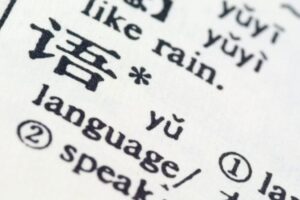When it comes to human translation vs. machine translation, people have different opinions because of their different perspectives on this subject. Translation AZ offers professional translation in other languages from native translators. The accuracy of the translations ranked us as one of the best translation agencies. We provide professional business (user manuals, training manuals, handbooks, clinical trials, etc.), institutional (Top Secret Documents for State & Federal Agencies – Translators with Security Clearance available), personal (immigration, documents, medical records, school transcripts, birth certificates, divorce decrees, etc.) translation services.
You can reach a large audience with Translation AZ to promote your services. Even if you want a professional translation from legal, financial or technology IT sectors, our team is prepared to offer you precisely what you need.
Let’s see the main differences between human and machine translation and what is best for you.
Human translation vs. machine translation – main differences
Human translation vs. machine translation – is a very discussed subject when it comes to professional translations.
Machine translation is an automated software that provides a translation task. Many people use this method because they think it is a viable option for bulk translation jobs. It is more affordable, and you don’t need to hire people for this job. Artificial Intelligence (AI) uses programmed rules and dictionary databases. The result is often accurate, yet the machine translations cannot provide literal translations because some cultures have specific expressions. If these idioms are wrong translated, the effect may be humorous in the best cases, but sometimes it may cause offence or create customer problems.
The main benefits of machine translations are:
- Speed – In terms of speed, computers will always be faster than humans. Machine translation is preferred by most businesses when there is a lot of content to be translated. While it may be tempting to let machine translation do your job quickly, the quality of the final product will be much lower. The final translation might contain grammatical or typographical errors and meaning errors.
- Cost-effective – Machine translation is also preferred because it is affordable. Because it removes the need for customization of the translation task, machine translation is very reasonable. Rework costs are not included in machine translation fees, which is an essential aspect of human translation.
- Consistent – Machines can work indefinitely and can do so without human intervention. Machine translators are therefore more consistent than human translators. A machine cannot always recognize the meaning of words and translate them correctly.
The disadvantages of machine translations are:
- Quality concerns – Machine translators don’t understand the context of the word or phrase. It is impossible to guarantee that the final product will accurately communicate the message of the original content. Machine translators make simplistic word choices. Machines default choose the lowest common denominator when it comes to vocabulary. Automated translators may select words that are not consistent with the original meaning.
- Hidden costs – Although automated translation seems cheaper initially, there are hidden costs. Machine translation is inaccurate, so you will need to have a human translator proofread and revise the text. This will add additional costs.
- Off-brand Translation – Machines cannot understand the meaning of your word choice and its relationship to your brand. They may substitute generic words for your original brand messaging, which could send a wrong message.
Human translation is more accurate because it is made by real people aware of cultural sensitives, tone, idiomatic phrases and familiarity with the language. The translation should sound natural and fluid. It is often a creative process as words and phrases must be rewritten and rearranged to make sense to the reader. A high-quality translation must preserve the original meaning of the text.
The benefits of human translation are:
- Humans understand cultural differences – every culture has its unique idioms which, if they are not rightly translated, may sound hilarious—the client. Cultural sensitivities are significant in the translation process. Every culture has its values that are incorporated into the language. Pay attention to cultural norms and values when translating your professional content from one language to the next. At the same time, by hiring a professional translation company, many translators claim to be knowledgeable about cultural norms and values. Professional translation firms have experience in dealing with sensitive cultural content.
- Language expertise – native translators, have the experience to translate the content to suit the audience’s needs.
- Better quality – native translators know how to differentiate the different meanings of the same word in a particular language. Sometimes it can become tricky because a machine cannot relate the word to the context. Some phrases may be offensive to specific cultures, and the machine translators might not be able to understand them. The tools may have difficulty translating native names and slang to meet the target audience’s needs.
Choose Translation AZ for quality and accuracy
Human translation vs. machine translation is a debate topic. Many people prefer human translation because of its accuracy and better quality. The native translators from Translation AZ have the necessary language expertise in both languages they translate to offer the authentic connotation of a document to the audience. All of our translators know cultural norms and values and how to deal with culturally sensitive content. We can handle significant translation/localization content, and you will receive a comprehensive proficiency in both languages.




